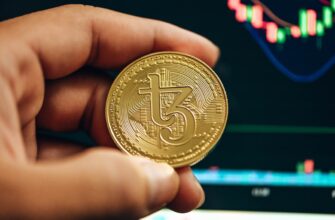- Introduction: The Harsh Reality of Bitcoin Scams
- Understanding Bitcoin Scams: How They Operate
- Immediate Steps to Take After Sending Bitcoin to a Scammer
- Reporting the Scam: Official Channels That Matter
- Can You Actually Recover Stolen Bitcoin? Realistic Expectations
- Prevent Future Scams: Essential Security Practices
- Frequently Asked Questions (FAQ)
- Conclusion: Vigilance Is Your Best Defense
Introduction: The Harsh Reality of Bitcoin Scams
Cryptocurrency scams have surged, with Bitcoin being a prime target due to its popularity. Once you send Bitcoin to a scammer, the irreversible nature of blockchain transactions makes recovery extremely challenging—but not always impossible. This guide provides actionable steps to maximize your chances, while exposing common pitfalls. Remember: Time is critical. Acting fast improves odds, though success is never guaranteed.
Understanding Bitcoin Scams: How They Operate
Scammers exploit Bitcoin’s pseudonymous design and transaction finality. Common tactics include:
- Phishing schemes: Fake emails or websites mimicking exchanges to steal login credentials.
- Fake investment platforms: “Guaranteed returns” traps that vanish after deposits.
- Romance scams: Emotional manipulation for “emergency” Bitcoin transfers.
- Impersonation fraud: Posing as government officials or tech support demanding crypto payments.
Bitcoin transactions can’t be reversed like credit card charges. Once sent, funds move to the scammer’s wallet, often laundered through mixers or overseas exchanges.
Immediate Steps to Take After Sending Bitcoin to a Scammer
Act within minutes to hours for the best outcome:
- Cease all contact: Block the scammer immediately to prevent further manipulation.
- Document evidence: Screenshot transactions (TXID), wallet addresses, chats, and scammer profiles.
- Secure accounts: Change passwords and enable 2FA on exchanges and wallets.
- Contact involved platforms: If sent via an exchange (e.g., Coinbase), report fraud—they may freeze linked accounts.
Reporting the Scam: Official Channels That Matter
Reporting creates legal pressure and aids investigations:
- Local law enforcement: File a police report with transaction evidence.
- IC3 (Internet Crime Complaint Center): Submit detailed reports at ic3.gov for FBI review.
- FTC (Federal Trade Commission): Report at reportfraud.ftc.gov (U.S. residents).
- Your country’s financial authority: E.g., Action Fraud (UK) or local cybercrime units.
Tip: Share the scammer’s Bitcoin address to blacklist it on blockchain analytics platforms like Chainalysis.
Can You Actually Recover Stolen Bitcoin? Realistic Expectations
Recovery is rare but possible in specific scenarios:
- If the scammer is identified: Law enforcement can seize assets through legal action.
- Exchange cooperation: If funds reach a regulated exchange, they might freeze accounts.
- Private investigators: Reputable firms (e.g., CipherBlade) track stolen crypto—but vet thoroughly to avoid double-scams.
Critical warning: Avoid “recovery scammers” promising guaranteed returns for upfront fees. These are 99% fraudulent.
Prevent Future Scams: Essential Security Practices
Protect yourself with these non-negotiable habits:
- Verify recipient addresses via multiple checks before sending.
- Use hardware wallets (e.g., Ledger) for large holdings.
- Research investments deeply—search “[platform name] + scam” reviews.
- Never share seed phrases or private keys. Legitimate entities won’t ask for them.
Frequently Asked Questions (FAQ)
Q: Can I reverse a Bitcoin transaction after it’s confirmed?
A: No. Blockchain confirmations make transactions immutable. Recovery relies on tracking funds or legal intervention.
Q: Are Bitcoin recovery services legitimate?
A: Most are scams. Legitimate firms charge only after recovery and provide verifiable credentials. Never pay upfront “fees.”
Q: How long do recovery attempts take?
A> Investigations span months or years. Report immediately to improve odds.
Q: Should I confront the scammer?
A: No. This alerts them to cover tracks. Quietly gather evidence and report.
Q: Can exchanges refund stolen Bitcoin?
A> Only if their platform was compromised. User-error transactions (e.g., sending to a scammer) aren’t refundable.
Conclusion: Vigilance Is Your Best Defense
While recovering Bitcoin from scammers is an uphill battle, swift reporting and documentation offer the only viable path. Focus on prevention: treat every transaction as irreversible and verify relentlessly. Share this guide to protect others—awareness remains the crypto community’s strongest shield against fraud.








